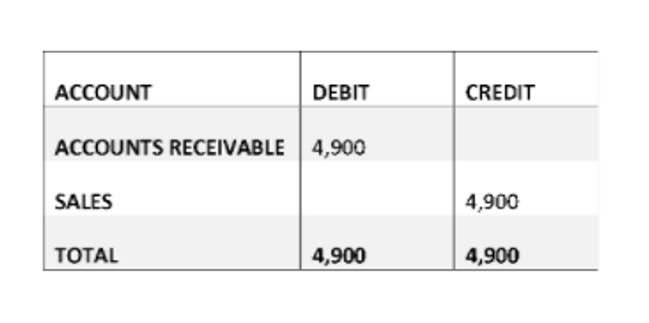Real estate accounting: A clear and simple guide for 2022

We hope this short guide gives you the tools to make an informed decision regarding your real estate business’s accounting practices. Take advantage of the information offered here and put your small business on the pathway to success. Finally, If you have a piece of real estate you’re looking to sell, single families, multi -family, apartment buildings well make you a fair offer and close on your time line .
- If you use an official accounting system, that system will automate much of the behind-the-scenes work.
- Bookkeeping may be fun to a certain set of individuals, but the majority of us find it challenging or boring or somewhere in between.
- It’s entirely possible to find an adaptable solution that accommodates your business practices, whether that includes property management, working with tenants, or tracking commissions.
- Real estate investors can readily identify areas of expense overflow and revenue leakage, ensuring optimal cash flow and net operating income.
- Most importantly, by entrusting your financial details to a skilled bookkeeper, you can spend less time on mundane tasks like recording transactions and more time driving the growth of your business.
- No matter what level of help you need, hiring a virtual assistant or team could be exactly what you’re looking for at a price and scalability that makes it feasible both now and in the long term.
- Proper bookkeeping is essential for success in the fast-paced world of real estate.
Association Fees and Expenses
Real estate accounting is an essential part of owning and operating rental property. While accounting is probably one of the least favorite tasks that most investors want to do, good accounting can help keep property profits higher by accurately tracking income, expenses, and tax deductions. Programs like Excel, Numbers, Google Sheets, and OpenOffice can be used to create a basic real estate bookkeeping system to track income and expenses. However, even with one rental property, keeping information updated manually can become tedious and it’s easy to have something fall through the cracks. Real estate bookkeeping usually isn’t the first thing investors think of when investing in property, but it’s an important part of owning and managing rental property.

Is Real Estate Accounting Difficult?
Sign up as a customer today and get a free month of bookkeeping, valued at $299. We try our best to keep you with the bookkeeping team you’re assigned when you come on board. If there’s any change in your bookkeeping https://www.bookstime.com/ team, we’ll let you know as soon as possible and make sure the transition is a smooth one. We’ll work with you to connect accounts and pull the data we need to reconcile your books. Join over 35,000 US-based business owners who have streamlined their finances and have grown their businesses with Bench.

Use Accurate Reporting Procedures
- These insights empower you to make strategic decisions, such as buying or selling properties, optimizing rental rates, or adjusting your investment strategies, with a higher likelihood of achieving your goals.
- Your profits and losses report should include operating earnings, or the profit made before income and tax.
- Although not investment companies, some non-public real estate companies use narrowly-scoped industry-specific accounting practices to value their real estate at fair value.
- The reconciliation process ensures that the bank account balance in your real estate accounting system is the same as what the bank shows.
- By law, it is required that businesses keep up-to-date and standardized records of all money going in and out of their company.
Reports created from a real estate bookkeeping system can also be generated based on a specific date range, such as monthly, year-end, or trailing 12 months. Instead of “maintenance”, this roof replacement would most likely be a capitalized expense that would increase the basis of the https://x.com/BooksTimeInc property and need to be calculated into your depreciation expense. Like any other accounting practice, accounting in real estate is used for many reasons. One of the chief reasons is to provide an accurate and clear picture of the overall health of a business. Another reason is for tax purposes and to quickly assemble the required documents for an audit if one’s business is selected.
Key Principles of Real Estate Tax Accounting: What You Need to Know
There’s a very real learning curve if you’re going to take care of the bookkeeping duties yourself. No one likes an audit, but if your books are in order, you’ll have a much easier time arguing your case and reconciling any discrepancies. Aside from providing you personal peace of mind in understanding exactly where your business stands financially, there are some very practical and legal reasons why bookkeeping is so important. Bookkeeping may be fun to a certain set of individuals, but the majority of us find it challenging or boring or somewhere in between. As far as tasks that we like to delegate to a virtual assistant, bookkeeping is pretty high on the list.
- The Internal Revenue Service (IRS) uses Schedule E to define important business itemizations.
- As the payments progress, the interest portion decreases, and the principal portion increases.
- Although the set-up of a book can be time consuming, the upkeep of your book should be quick and easy.
- That’s where Bench comes in—our intuitive software handles these financial intricacies, and our team of human bookkeepers work with precision and dedication to ensure your financial matters are always in order.
- These templates greatly simplify the accounting process for small business owners and real estate investors by offering easy-to-understand layouts and a streamlined design.
- The first step in setting up virtual bookkeeping services for real estate is to take inventory of your specific needs, including both goals and pain points.
It is crucial to bookkeeping for real estate investors maintain a precise and detailed record of your reserve fund transactions and balances to oversee cash flow, handle taxes, and adhere to legal requirements. Utilize a distinct bank account for your reserve fund and refrain from commingling it with personal or operational funds. Moreover, utilizing property management software or accounting software that is compatible with your bank account can assist in categorizing, reconciling, and reporting your reserve fund activities. Consider using a ledger or spreadsheet to monitor the inflows, outflows, and current balance of your reserve fund for each property or portfolio. Ensure to regularly review your reserve fund statements and reports and make necessary adjustments to your budget and projections.
Separate Business And Personal Accounts

Professional services and programs like QuickBooks are extremely helpful for an investor who is at this point. Understanding these factors and tracking them diligently can help keep your real estate business profitable. Listed below are the top five bookkeeping tips for novice real estate investors.

Dejar un comentario
¿Quieres unirte a la conversación?Siéntete libre de contribuir!